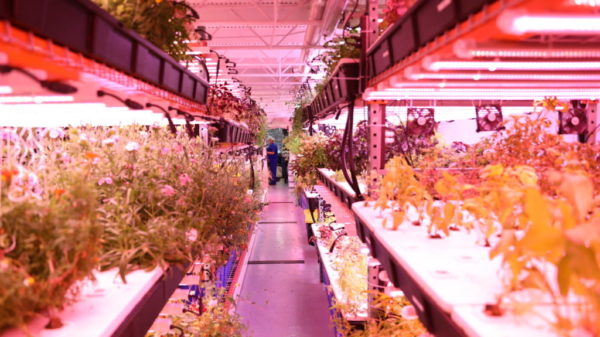
In another bid to tackle the soaring office vacancy rate, Arlington County is mulling whether to fill vacant offices with unconventional tenants such as breweries and hydroponic farms.
The county is looking at allowing urban farms, artisan workshops, and craft beverage-making and dog boarding facilities to operate by-right in commercial, mixed-use districts throughout Arlington County. Some of these uses are already allowed along Columbia Pike.
Now above 21%, the office vacancy rate in Arlington spells lower tax revenue and belt-tightening for the under-development county budget. It ticked up during the pandemic and remained high even as buildings reopened, mask mandates were lifted and people returned to the office.
As the trend persisted, Arlington County Manager Mark Schwartz and his staff launched a “commercial market resilience strategy” to get new types of tenants moved in quickly. The strategy focuses on zoning changes with a limited impact on neighbors that can be approved with through a new, less involved public engagement process. The strategy was first used last fall to approve micro-fulfillment centers.
Last night (Wednesday), a majority of the Arlington County Planning Commission approved a request to authorize public hearings on this proposal.
“We do need to be thinking creatively,” said Planning Commission Vice-Chair Sara Steinberger. “I’m appreciative that the county came forward with a streamlined approach so we can start fast-tracking some things. The community feedback and involvement is essential and is a cornerstone of the Arlington Way and how we comport ourselves within this community. That said, it’s never fun to be bogged down in bureaucracy either, so when there is an opportunity to move more quickly on certain things in a limited field, I think it’s appropriate to do so.”
The proposal also would let colleges and universities, which can currently operate in offices only after obtaining a more burdensome site plan amendment, move in by right.
“They tend to be our strongest source of demand in office buildings at a time when we aren’t seeing much demand,” Marc McCauley, the director of real estate for Arlington Economic Development, told the Planning Commission.
Commissioners Stephen Hughes and James Schroll abstained from the final vote, reprising concerns they raised last year about the impact of these new uses on neighbors. While voting for the proposal, Commissioner Tenley Peterson questioned county staff about potential noise, smell and parking nuisances.
“I can see the good reasons for doing this,” Schroll said. “My reticicene is not necessarily what you’re doing on the zoning side, it’s more the outreach. There are some things that I feel like aren’t fully thought through… We’re pursuing these without fully understanding what use standards we need to put in place.”
Citing “incessant barking” from nearby dog-boarding facilities that can be heard from Jennie Dean Park, Hughes said he wants the community to understand that these changes would leave nuisance mitigation up to the condition of the building and county noise ordinances.
“There is no place in the entire county where your actions do not impact another person,” Hughes said, pushing staff to instead draft a document listing “externalities we can all agree to as a community that we will not do.”
Commissioner Daniel Weir said they run the risk of over-emphasizing the role of the zoning ordinance.
“There are other parts of the code that [deal with] these externalities that we’re worried about,” he said. “I don’t think we should be in the business of determining what’s permitted and not permitted if our understanding is that the zoning ordinance is where we prevent all the evils of society.”
The business community voiced support for the changes during public comments.
“This is a great step in terms of modernizing the Arlington zoning ordinance and pushing it ahead into the 21st century to attract and retain these emerging businesses in our community,” said John Musso, representing the Arlington Chamber of Commerce.
Apartment and Office Building Association of Metropolitan Washington representative Scott Pedowitz, formerly a Chamber official, said the county has to jump on opportunities when they arise.
“If every new or novel or slightly different idea that comes in is going to be a year long process with uncertainty, that business is going to go to Loudoun, Fairfax, or dare I say, the District or Maryland,” he said.
Later this year, the county will consider guidance allowing shared and ghost kitchens, too, but first it has to iron out consequences like trucks delivering during early-morning hours, according to McCauley.
Schroll also criticized the limited community engagement, such as including the topic in a 3 p.m. zoning meeting. The county says it placed ads about these hearings in the Washington Times, posted an overview of this proposal online and created a Commercial Market Resiliency web page.
“I know it’s a different process from what we’ve done in the past,” McCauley said. “These are what we’ve identified as the quick and nimble [uses]. The more nuanced ones we get into will have more robust community engagement.”
The Arlington County Board is slated to consider this proposal during its meeting on Saturday, Jan. 21. The Planning Commission and the County Board will later vote whether to approve these uses.

